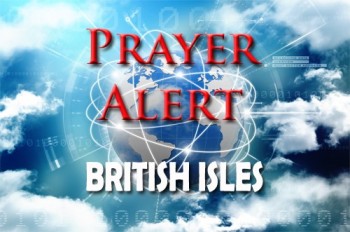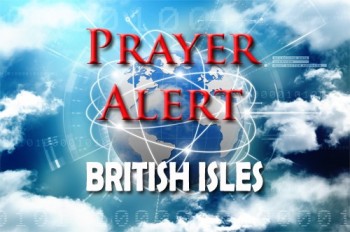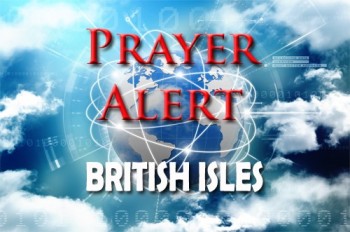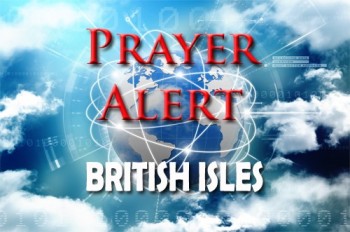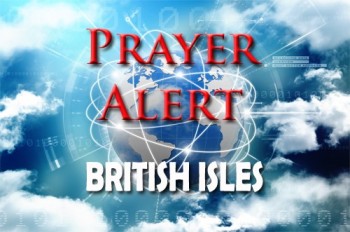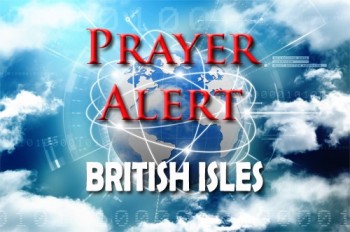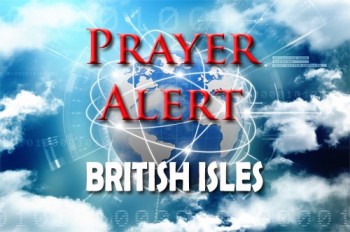Displaying items by tag: United Kingdom
Volunteering and keeping together in crisis
The Queen said ‘We salute you’, after 405,000 individuals stepped up to support the NHS just two hours after the government made an appeal for helpers to deliver medicines to the vulnerable and do shopping. Boris Johnson said the number of volunteers was equivalent to the population of Coventry. Meanwhile people are finding new ways of being together while apart. Isolated elderly are becoming adept at meeting friends, neighbours, and prayer groups by Skype, Zoom and Messenger. There are wonderful examples of acts of kindness, generosity, and compassion that demonstrate the underlying unity that humans feel for each other. We can pray according to Psalm 5:11 that God’s protection will spread over all who are currently volunteering and showing unity and kindness.
City missions and homeless
London City Mission cares for sick and marginalised Londoners. Pray for churches in lockdown as they adapt to share the gospel of light in the darkness of this crisis. May Christians be beacons of light so that God’s grace is apparent in London and the nation. Pray for people like Kris, homeless and a Big Issue vendor, who can’t sell his magazines and relies on one meal a day. Pray for provisions to be made for the homeless in lockdown A Glasgow homeless shelter had to close when a staff member and a service user caught coronavirus. They tried to prevent people from being left without shelter, but those with insecure immigration status or complex background issues are sleeping on the streets after the council said they did not have a statutory duty to accommodate them. Pray for councils and police to care for self-isolating homeless. See
Immigration detainees must be released
In this crisis, the Government has released 350 people from immigrant detention. But hundreds more are still being held in removal centres, pending ‘imminent’ deportation; human rights charities are calling for them all to be released. On 25 March the High Court was told by Detention Action that under British law the Government cannot continue to detain these people if they are not about to deport them. The case is vital as detainees are particularly vulnerable to coronavirus, living in big groups and unable to take ‘social distancing’ measures. They are living in unsanitary and unsafe conditions, with people displaying symptoms of the virus kept in the detainee population, and some even undertaking functions such as cleaning or serving food.
Pastor’s warning from intensive care
Mark McClurg, an Elim pastor, is in intensive care at a Belfast hospital after becoming infected with coronavirus. In a video posted on social media from his hospital bed, he said, ‘This coronavirus is deadly and is dangerous. It wants to kill you. It wants to take all the life out of your lungs so that you cannot even breathe.’ He wants people to take the virus seriously. He praised the nurses and doctors who had cared for him day and night despite the risk to their own health. ‘They have saved my life,’ he said. ‘I am grateful that I am living. Don’t think this won’t touch you. Don’t think for a moment that this is just a cough and a cold. Look at me and listen. If you get coronavirus and go into an intensive care unit, you are going to struggle to breathe, you could go on a ventilator, so please listen to all the Government’s advice.’
London hospitals - tsunami' of coronavirus cases
Hospitals in London are facing a ‘tsunami’ of coronavirus cases and are beginning to run out of intensive care beds. Chris Hopson, of NHS Providers, said that while critical care capacity had been expanded, hospitals in the capital had seen an ‘explosion’ in demand. A third of the UK cases have been diagnosed in the city. Staff absence rates due to infection are at 30% to 50%, as hospitals desperately struggle with wave after wave of seriously ill patients. Mr Hopson said an extra 4,000 beds soon to be available at London’s ExCel centre will be used up very quickly in the peak, which is two or three weeks away. From April all routine operations will be cancelled for three months, and as many patients as possible will be discharged from hospital. These two measures could free up 30,000 of the 100,000 hospital beds in England alone.
Scotland: field hospitals
NHS field hospital sites in Scotland will be identified ahead of a predicted rapid rise in coronavirus cases. Chief medical officer Dr Catherine Calderwood said, ‘We have had quite detailed discussions very recently and I know that there are sites being considered.’ Referring to comments by the vice-president of the Royal College of Emergency Medicine that the dramatic explosion in coronavirus case numbers in London could be replicated in Scotland, she said, ‘Unfortunately, he is absolutely right. We have people with mild illness, which we know 80% of people will experience - but up to 20% of people will have a much more significant illness.’
Ten years and counting - the Real Easter Egg
David Marshall, of the Meaningful Chocolate Company, launched the Real Easter Egg ten years ago after discovering that not a single Easter egg mentioned the Christian faith. This startling revelation was the springboard for this egg, which, a decade on, still cuts a lonely figure in the sea of chocolate eggs on supermarket shelves that make no reference whatsoever to the Christian origins of the festival. But the fact that it is still on the shelves isn't something David takes for granted: after all, when the egg was first launched, supermarkets were reluctant to stock it. There is little reference to Jesus or the religious aspect of Easter elsewhere, but David’s company continues to provide faith-based Easter eggs that come with a children's book telling the story of Easter.
Coronavirus kindness
The Constantine Bay Store, near Padstow, wants older people to be able to shop ‘exclusively and with confidence’. Each day between 8 and 8.30 am, the shop will open its doors only to those born before 1950. The owner said he hoped it would ‘give them a little bit of peace of mind’ in the fight against coronavirus. Nationwide, Sainsburys are introducing a similar incentive. C3 Church in Cambridge gave out 3,000 ‘Love Your Neighbour’ flyers to its congregation to post through their neighbours’ doors, offering to collect groceries, speak on the phone, or collect a prescription for those who are in self-isolation. Church members fill in their contact details on the flyer so that people can request help. See Neighbourhood Prayer Network have produced ‘Help Cards For Your Street’, which can be downloaded free here
Walking in the opposite spirit
A Baptist blogger recently wrote that in an atmosphere of fear and vulnerability because of COVID-19, we have an unprecedented opportunity to display the goodness of God. But to do that we need to walk in the opposite spirit of what surrounds us. If our peace is a shallow layer over fear, it isn’t enough. On the other hand, if we wait on God and connect until His confidence fills us, then we can carry His presence with us. Fear blunts our thinking, making us inflexible and unfeeling toward others. In contrast, with a heart at rest, we can receive Him and all we need (James 1:5-7). When we connect with God, He pours His love into our hearts (Romans 5:5). Then, even if we are surrounded by an atmosphere of self-interest, we can walk in the opposite spirit, looking for ways to bless others.
Coronavirus: government measures
Many people over 70, pregnant women, and those with underlying health conditions are now in voluntary lockdown, taking personal responsibility to stay away from potential infection. Continue to pray for their protection and peace of mind. The nation should avoid gatherings and crowded places, including pubs, clubs, theatres, underground and even the workplace if they can work from home. Pray for a calm response to these government requests. Most schools are shut ‘to reduce social contact throughout society’. Children of ‘key workers’ and those who receive free meals or depend on school for food and security will be catered for in some classrooms with a skeleton staff. Pray for any ‘anomalies’ in these provisions to be speedily resolved, for example teachers who are parents with school children at home. Pray for wise government strategies and for parents presented with childcare issues. Some stay-at-home parents will struggle financially. May government provisions be adequate for these and other vulnerable groups.
